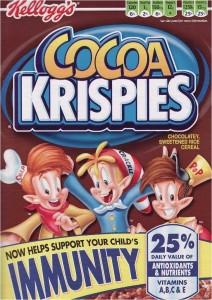Oh no! Bisphenol A again
Here’s a good reason why food manufacturers don’t want to test for harmful chemicals. If you test, you might find something you don’t want to.
Consumer Reports did just that. It tested a bunch of canned juices, soups, tuna, and green beans and found bisphenol A (BPA) in almost all of them — even the ones labeled organic or bisphenol A-free.
BPA, you may recall, is a chemical in polycarbonate plastics that acts as an endocrine disruptor. How harmful is it? Debate rages. These new data will add to the debate.
CR says it found the highest levels of BPA in some samples of canned green beans and canned soups:
• Canned Del Monte Fresh Cut Green Beans Blue Lake had the highest amount of BPA for a single sample in Consumer Reports tests, with levels ranging from 35.9 parts per billon (ppb) to 191 ppb. Progresso Vegetable Soup BPA levels ranged from 67 to 134 ppb. Campbell’s Condensed Chicken Noodle Soup had BPA levels ranging from 54.5 to 102 ppb.
• Average amounts in tested products varied widely. In most items tested, such as canned corn, chili, tomato sauce, and corned beef, BPA levels ranged from trace amounts to about 32 ppb.
Because it was particularly concerned about BPA exposure for infants and young children, it tested samples of infant formula and apple juice. It found:
• Similac liquid concentrate in a can averaged 9 ppb of BPA, but there was no measurable level in the powdered version.
• Nestlé Juicy Juice in a can averaged 9.7 ppb of BPA, but there were no measurable levels in the samples of the same product packaged in juice boxes.
Although the BPA in Nestlé Juicy Juice averaged 9 ppb, this was not so high, but children consume a lot of juice so this levels worries the testers.
While waiting for the experts to decide just how bad a problem BPA might be for adults and children, Consumer Reports recommends reducing the risk:
* Choose fresh food whenever possible.
* Consider alternatives to canned food, beverages, juices, and infant formula.
* Use glass containers when heating food in microwave ovens.
I would add to this: urge the FDA to finish up its scientific review right away. It would be good to know more about just how harmful BPA is, and at what levels.
Update, November 4: I love the industry response to this report: “The use of bisphenol A (BPA) in can linings is both safe and vital for food protection.”
Update, November 9: Thanks to Jill Richardson of La Vida Locavore for telling me about her investigations into lobbying against restrictions on BPA (she also posted a summary as a comment here, but her site gives many more of the political details). The plastics and related industries must be really worried. They have reason to be worried. There hasn’t been much reassuring news about BPA recently.




